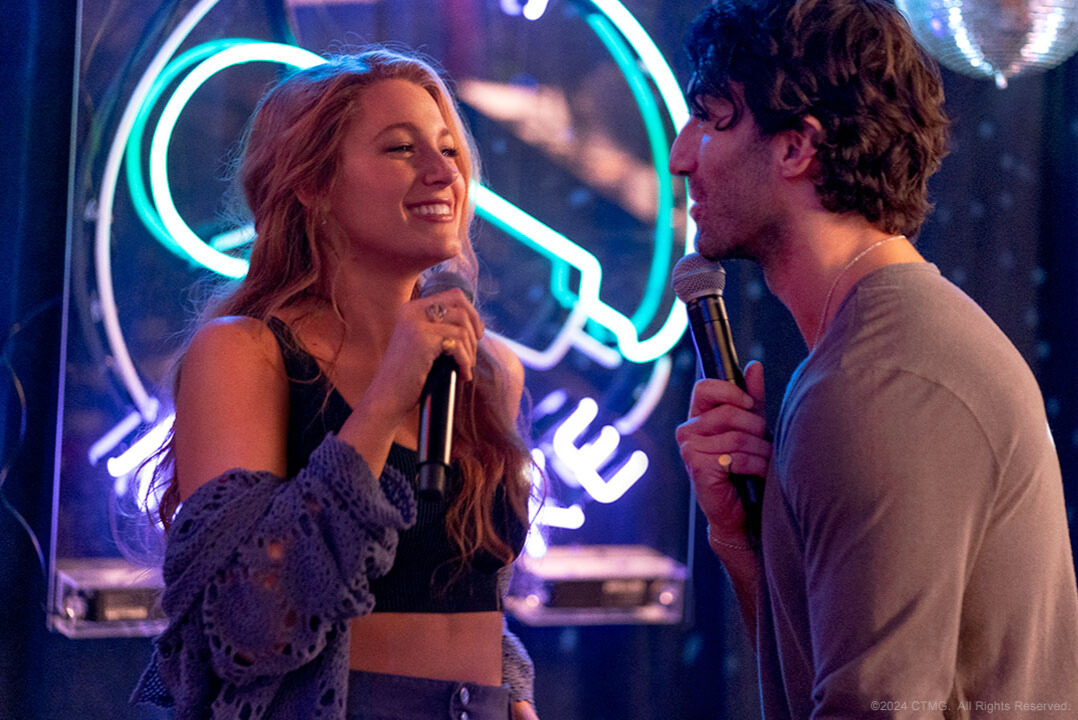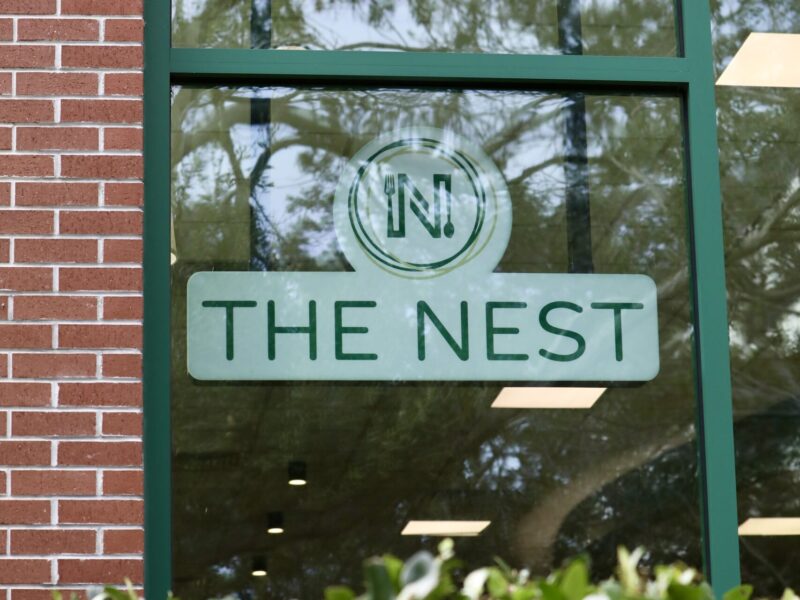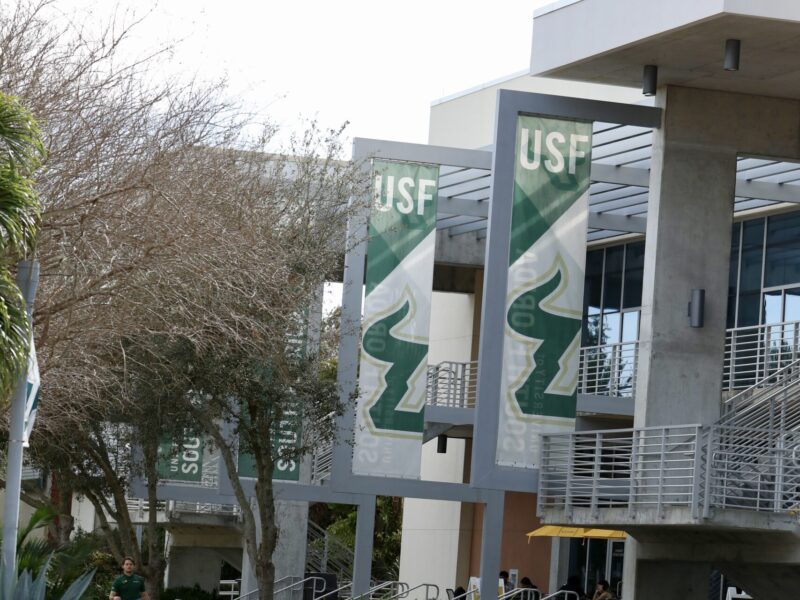Photo courtesy of Sony Pictures
Disclaimer: This article mentions domestic abuse and violence, reader discretion is advised.
By Olivia Borek
After spending hours searching for the perfect opening to this article, I realized there is no “right” way to begin a conversation about domestic violence. It’s a sensitive topic that requires caution and care, which is the mindset I hope to maintain throughout this piece.
Originally published in 2016 by Colleen Hoover and now making headlines with the drama-filled 2024 film adaptation, “It Ends With Us” is set in Boston and follows the journey of Lily Bloom (Blake Lively), a 23-year-old grappling with the death of her abusive father while pursuing her dream of opening a flower shop.
She quickly forms a connection with Ryle Kincaid (Justin Baldoni), a handsome and successful neurosurgeon whose domineering, standoffish nature sharply contrasts Lily’s sensitive and delicate demeanor. Their bond deepens when Lily befriends Ryle’s sister, Alyssa (Jenny Slate), who becomes her close friend and confidante.
As Lily’s relationship with Ryle progresses, cracks begin to show. Despite his loving moments, Ryle’s temper and controlling behavior escalate into physical abuse, mirroring the violent patterns Lily witnessed in her parents’ marriage. These moments of abuse are heart-wrenching for Lily, who struggles with her feelings for Ryle and her determination not to repeat the cycle of violence her mother endured. Hoover illustrates the complexity of Lily’s internal conflict, torn between Ryle’s charm and the darker aspects of his personality.
The film alternates between scenes of Lily’s present relationship with Ryle and flashbacks to her past with Atlas Corrigan (Alex Neustaedter), a kind and homeless boy she helped when they were teenagers.
As Lily’s first love, Atlas represents safety and emotional vulnerability — qualities that sharply contrast with Ryle’s volatile and controlling nature. These flashbacks give deeper context to Lily’s past and her struggle to reconcile her old feelings for Atlas with her current relationship with Ryle.
A pivotal moment occurs when Lily, Ryle and her mother visit a restaurant where Atlas (Brandon Sklenar) now works. This encounter reignites old feelings between Lily and Atlas, creating tension that Ryle quickly picks up on.
Atlas, recognizing the signs of abuse in Lily’s relationship, is protective of her, which only aggravates Ryle’s jealousy and possessiveness. The strained dynamic between the three characters culminates in a confrontation that forces Lily to confront the reality of her relationship with Ryle.
I found it interesting that the scenes of abuse portrayed in the movie are filmed in such a way that the audience is uncertain whether the actions are deliberate or accidental.
As the abuse worsens, Lily faces a difficult decision — whether to stay with Ryle or leave for the sake of her own safety and well-being. Her internal battle becomes more complicated when she discovers she is pregnant, a revelation that forces her to think not just of herself, but also of the child she is carrying.
Ultimately, with Atlas’s support and the strength she draws from her mother’s experience, Lily finds the courage to break free from Ryle and end the cycle of abuse.
The film closes with Lily making peace with her decision to leave Ryle and build a healthier future for herself and her child. Atlas remains a figure of stability and compassion in her life, though the story leaves open the possibility of their romantic reunion.
“It Ends With Us” is not just a romance, but a powerful exploration of domestic violence, trauma and the strength required to leave behind a toxic relationship. It challenges viewers to confront the complex realities of love, forgiveness and personal growth in the face of hardship.
All of the actors in “It Ends With Us” have a responsibility to approach the film’s sensitive topics with utmost care. Yet star Blake Lively has recently been criticized for doing the opposite, creating a release filled with drama and controversy.
It began with an early promotional video in which Lively urged fans to see the film in theaters, saying, “Grab your friends, wear your florals and head out to see it.” Flowers are an essential motif in “It Ends With Us,” symbolizing both Lily’s personality and her resilience. Yet many believe this statement was tone-deaf, shifting focus away from the fact that the film addresses domestic violence.
The marketing campaign in general has led audiences to believe they are going to see a lighthearted film, rather than one dealing with a serious topic.
In various interviews, Lively has failed to address the subject of domestic violence when prompted, especially considering that this movie could be instrumental in understanding how domestic violence develops. Another example of this tone-deafness is Lively using the momentum of “It Ends With Us” to promote her new haircare line, Blake Brown Beauty, which detracted from the film’s serious themes.
Drama has also brewed between the lead stars, especially since allegations surfaced against lead actor and director Justin Baldoni.
He reportedly “fat-shamed” Lively on set, opting to consult the on-set trainer to verify her weight to ensure he could lift her without hurting his back, given his pre-existing back issues.
Two sides of the story emerged — one sympathetic to Lively’s self-consciousness about her weight after giving birth, and another understanding Justin’s desire to take precautions.
“Creative differences and a power struggle between Lively and Baldoni were apparent on set. Everyone knew that they didn’t like each other,” said one of three crew members who spoke to the Rolling Stone.
“Blake is very business-minded and very practical,” the source explained about the overblown online gossip. They said that compared to Lively, Baldoni is “so on the other side of why he makes art that they were never going to be friends.”
At the New York premiere of “It Ends With Us”, Blake told E!, “[Ryan Reynolds and I] help each other, we work together so much. The iconic rooftop scene, my husband actually wrote it. Nobody knows that.”
They received backlash not only for going against the director and screenwriters, but also for being labeled “scabs” for writing during the critical Screen Actors Guild of America Strike of 2023.
The rest of the cast has also responded to the drama.
Sklenar spoke with Access Hollywood , addressing the cast drama with Lively and Baldoni.
“It just seems silly to me. It’s kind of defeating the whole purpose of the film to spread negativity. It’s an important film for so many women and survivors of domestic abuse. And yeah, that’s what it’s all about, making people feel heard and strong and loved. So to project anything but that seems counterintuitive. I appreciate those people who appreciated it,” he said.
Outside of the actual movie, Hoover was criticized for her tone-deaf actions when she revealed last year that a coloring book for “It Ends With Us” was in the works.
She later took to social media to apologize, stating, “The coloring book was developed with Lily’s strength in mind, but I can absolutely see how this was tone-deaf. I hear you guys and I agree with you. No excuses. No finger pointing. I have contacted the publisher to let them know I would prefer we don’t move forward with it. Thank you for the respectful discourse and accountability. Nothing but love.”
We must never forget the millions of people who struggle with domestic abuse every day. “It Ends With Us” left me with a new perspective on how one can emotionally manipulate and control someone. Aside from the drama and news headlines, we can’t overlook Lily’s strength or ignore the importance of discussing domestic violence in the media. I hope that everyone leaving the theater can look past the media drama and simply consider Lily’s emotions and how this can happen to someone in real life.
24/7 Domestic Violence Hotline: 800-799-7233



